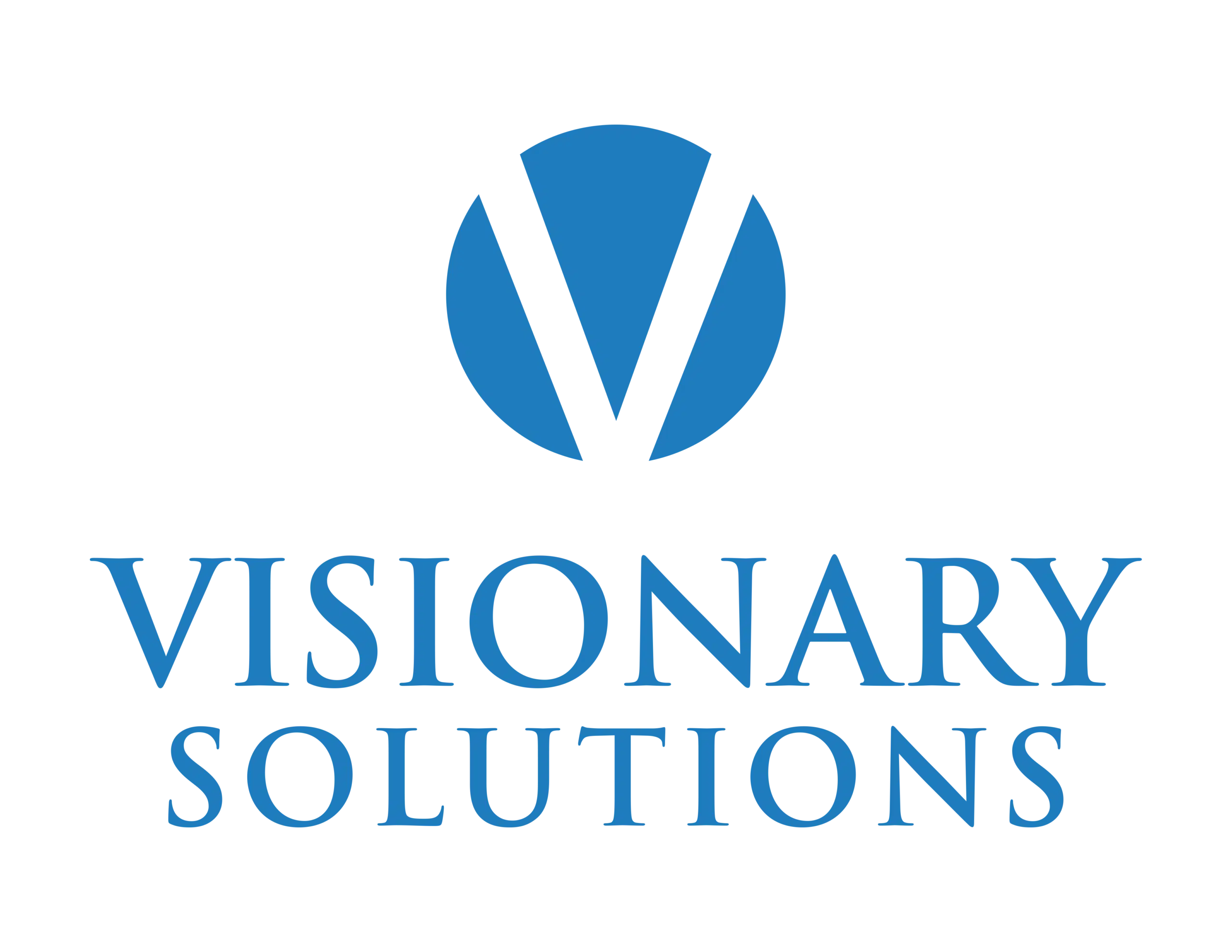In the intricate tapestry of the legal profession, effective client communication, streamlined intake processing, and overall operational efficiency stand as linchpins for success.
Herein lies the pivotal role of Legal Call Centers. These specialized hubs of communication excellence have emerged as essential assets in the contemporary legal landscape.
For those yet uninitiated, they serve as a bridge connecting professionals with their clients. They function as the vanguards of effective, round-the-clock communication, ensuring that no client’s voice goes unheard.
This comprehensive guide will navigate you through the intricacies of working with one, shedding light on the indispensable contributions they make to the legal industry.
What is a Legal Call Center?
In the dynamic realm of the legal profession, maintaining effective communication with clients is of paramount importance.
Legal call centers have emerged as a valuable resource to facilitate this crucial aspect of engagement.
Defining Legal Call Center
A legal call center is a specialized service designed to handle incoming and outgoing calls on behalf of legal entities, including law firms, solo practitioners, corporate legal departments, and legal aid organizations.
These employ trained professionals who are well-versed in legal terminology and client interactions.
They serve as a central hub for managing client inquiries, appointment scheduling, case updates, and various other communication tasks essential to the legal practice.
Key Functions of Legal Call Centers
Legal call centers perform a myriad of functions that contribute to streamlined client communication and overall efficiency in practices.
These include but are not limited to:
- Client Intake: Legal call centers efficiently handle new client inquiries, collecting essential information to initiate the client intake process.
This ensures that no potential case goes unattended. - Appointment Scheduling: They manage appointments, ensuring that clients are scheduled to meet with their attorneys at convenient times.
This not only reduces the administrative burden on legal professionals but also enhances the client’s experience. - Case Updates: Call center agents provide clients with updates on their cases, offering peace of mind and transparency throughout the legal process.
- Emergency Assistance: In urgent situations, call centers can facilitate immediate contact with attorneys or appropriate legal authorities, ensuring that clients receive timely assistance.
Utilization Across Legal Entities
Legal call centers are versatile and can be adapted to various legal entities:
- Law firms, whether large or small, find value in outsourcing their call services to these centers.
- Solo practitioners benefit from the ability to focus on their caseloads without the interruption of client communications, ensuring that they are still well taken care of.
- Corporate legal departments rely on them to manage inquiries from employees, clients, and stakeholders.
- Even legal aid organizations leverage these services to efficiently respond to inquiries from individuals seeking legal assistance, especially in cases where access to justice is paramount.
Call Center Vs Legal Call Center
General Call Centers
General call centers are versatile service providers that handle a wide range of customer interactions through various communication channels.
They are often used by businesses across different industries to manage customer inquiries, resolve issues, and provide support.
These centers typically employ customer service representatives who are trained to handle diverse tasks such as answering questions, taking orders, and resolving complaints.
General call centers use standardized scripts and procedures to ensure consistency in customer interactions.
Specialized Services
Legal call centers, in contrast, are specialized service providers that cater specifically to the needs of law firms, attorneys, and legal professionals.
They offer tailored services designed to meet the unique requirements of the legal industry.
They employ call agents who are well-versed in legal terminology and processes, enabling them to provide services like client intake, appointment scheduling, legal information dissemination, and even emergency call handling for law firms.
These centers understand the legal protocols and compliance requirements that are essential when handling sensitive legal matters.
Moreover, they are equipped to deal with the confidentiality and ethical considerations inherent in the legal field.
Decision-Making Insights
The decision of whether to choose a general call center or a specialized one is a critical one for legal firms, and it can significantly impact their efficiency and client satisfaction.
The following insights shed light on why opting for one can be a pivotal choice for legal professionals:
- Expertise and Knowledge: Legal call centers employ agents who are well-versed in legal jargon and processes.
They understand the nuances of legal matters, ensuring that client inquiries are handled accurately and professionally.
This expertise is particularly crucial when addressing client inquiries that require legal knowledge and context. - Client-Centered Approach: Legal call centers prioritize the needs of legal clients.
They understand the importance of immediate assistance in the legal domain and are equipped to manage emergencies and urgent matters with precision.
This client-centered approach can lead to increased satisfaction and loyalty. - Compliance and Confidentiality: Legal call centers are attuned to the strict confidentiality and ethical standards of the legal profession. They have systems in place to ensure the secure handling of sensitive information, aligning perfectly with the legal industry’s stringent requirements.
- Enhanced Efficiency: Legal call centers streamline processes specific to the legal sector, such as client intake and appointment scheduling.
By outsourcing these tasks to a legal call center, law firms can free up their resources to focus on core legal tasks, thus enhancing efficiency. - Data-Driven Decision-Making: Legal call centers often offer reporting and analytics tools that provide law firms with valuable insights into call patterns, client needs, and areas of improvement.
These empower legal firms to make informed decisions and enhance their client service strategies.
Navigating the Landscape of Legal Intake Call Centers in the USA
The legal call centers USA landscape has undergone a remarkable transformation in recent years, emerging as a pivotal component of the legal industry.
These serve as a hub of communication between law firms, potential clients, and the ever-evolving legal market.
This section delves into their multifaceted world, their growth, significance, specialization, and their tangible impact on the legal field.
Evolution and Prevalence
Legal intake call centers have evolved from their initial roles as basic answering services to highly specialized, client-focused hubs.
In the past, they primarily provided after-hours support and message-taking.
Today, they offer a comprehensive range of services, from initial client intake and legal consultation scheduling to case qualification and client retention strategies. Their growth reflects the increasing reliance of the legal industry on outsourcing for efficiency and productivity.
These have become pervasive in the legal landscape. Law firms of all sizes, across various practice areas, have recognized its importance.
They recognize that legal call centers can efficiently manage a high volume of calls, ensuring that no potential client inquiry goes unanswered.
Specializations and Tailored Services
The strength of legal intake call centers lies in their ability to specialize in diverse legal niches.
They cater to a spectrum of practices, from personal injury to family law, and from criminal defense to real estate.
It allows their operators to be well-versed in the unique demands and vernacular of a particular legal domain.
This expertise goes a long way in reassuring potential clients and streamlining the intake process.
For example, a call center that specializes in personal injury law understands the urgency and sensitivity of such cases. Call operators are trained to ask the right questions to determine if the potential case aligns with the law firm’s focus.
Similarly, a call center catering to real estate law comprehends the intricacies of property transactions and can efficiently qualify leads.
Case Studies
To illustrate the effectiveness of legal intake call centers, consider the following case studies:
Case Study 1: Personal Injury Law Firm
A personal injury law firm saw a substantial increase in inquiries after partnering with a legal intake call center specializing in this area of law.
Their case acceptance rate improved significantly. The call center’s specialization enabled it to efficiently evaluate potential cases, ensuring that the law firm received leads aligned with its expertise.
As a result, it saved time and resources, focusing on high-value cases.
Case Study 2: Family Law Practice
A family law practice with a high volume of calls required a streamlined approach to client intake.
They outsourced this function to a legal intake call center with expertise in family law.
This partnership led to a 30% increase in qualified leads and a 20% reduction in non-productive initial consultations.
The law firm could dedicate more time to clients who truly require their services.
In these case studies, specialization not only enhanced lead qualification but also improved the efficiency and productivity of the law firms.
Enhancing Client Communications with a Call Center for Lawyers
In the realm of legal practice, effective communication is paramount.
Law firms regularly grapple with various communication challenges, from managing a high volume of incoming calls to ensuring timely responses to client inquiries.
These challenges can not only strain internal resources but also impact client satisfaction and the overall perception of the firm.
This section delves into how a legal call center can be the remedy for these issues and the positive impact it can have on client communications.
Addressing Common Communication Challenges
Legal professionals often find themselves juggling a myriad of responsibilities, making it challenging to attend to every incoming call promptly.
In the absence of a dedicated call management system, calls can be missed, leading to frustrated clients and potentially missed opportunities.
Additionally, the manual handling of inquiries, appointments, and messages can be time-consuming, prone to errors, and may lack a professional touch.
Legal call centers address these challenges effectively by providing a dedicated team of trained professionals who specialize in handling legal calls.
These centers offer a seamless call management process, ensuring that every client inquiry is promptly answered, appointments are scheduled efficiently, and messages are relayed accurately.
This not only streamlines the entire communication process but also lends an air of professionalism to the law firm’s image.
Streamlining and Professionalizing Client Communications
One of the most significant advantages of integrating a legal call center is the ability to streamline and professionalize client communications.
These centers are equipped with advanced call management systems and trained personnel who understand the nuances of legal proceedings. As a result, inquiries are handled with the utmost care and accuracy.
For instance, when a client calls seeking information about their case, a legal call center agent can efficiently access case-related details and provide the necessary updates, eliminating the need for clients to wait on hold or play phone tag with their attorney.
This level of efficiency and responsiveness not only saves time for both the firm and the client but also showcases a high level of professionalism.
Metrics of Improvement
To illustrate the tangible benefits of integrating a legal call center, it’s imperative to examine the metrics of improvement.
Utilizing data and statistics can provide concrete evidence of enhancements in client satisfaction, response time, and overall communication efficacy.
For instance, consider the case of a law firm that integrated a legal call center into its operations.
By analyzing data before and after this integration, they found a significant reduction in client wait times.
Response times to client inquiries were cut in half, leading to a remarkable 25% increase in client satisfaction scores.
Furthermore, it has witnessed a noticeable decrease in the number of missed calls and voicemails, leading to improved client engagement.
In another scenario, a mid-sized law firm integrated a legal call center and tracked the time attorneys spent on administrative tasks related to call management.
Post-integration, these administrative tasks consumed nearly 40% less attorney time, allowing legal professionals to devote more of their energy to casework, thus increasing overall productivity.
What services do legal intake call centers offer?
Legal intake call centers are a vital component of modern law practices, providing a wide range of services tailored to the specific needs of the legal field.
These services play a crucial role in not only managing client communications effectively but also ensuring compliance with legal standards and providing tailored solutions.
Here’s an exhaustive list of services offered, along with explanations of their relevance and practical applications in the legal context:
- Client Intake and Screening: Legal intake call centers are experts in gathering essential information from potential clients.
They screen potential cases to determine their legitimacy and relevance, ensuring that the firm only invests time and resources in valid matters.
This process helps law firms maintain their focus on cases with a high likelihood of success.
- 24/7 Availability: Legal issues can arise at any time, making round-the-clock availability crucial.
Call centers provide continuous access to legal assistance, ensuring that clients can reach out whenever they need support.
This is especially vital in cases of emergencies or after-hours legal needs.
- Appointment Scheduling: Legal call centers efficiently schedule appointments, reducing administrative burdens on law firms.
This ensures that clients have timely access to such services, whether it’s a consultation or court appearance.
- Multilingual Support: Language barriers should never impede justice.
Call centers offer multilingual support, ensuring that clients from diverse linguistic backgrounds can access legal assistance.
- Overflow Call Handling: Law firms often experience a surge in call volumes during specific periods.
Call centers handle overflow calls, ensuring that no potential client is left waiting or unanswered.
- Legal Consultations: Trained agents can provide preliminary legal consultations, offering guidance, information on available options, and a general understanding of the client’s situation.
- Lead Generation: They generate leads by identifying potential clients and capturing their information.
This service assists firms in expanding their client base.
- Legal Document Collection: Ensuring all relevant documents are collected is vital for legal cases.
Call centers assist in the collection of necessary information.
- Follow-ups: Legal cases often require consistent follow-ups with clients and other stakeholders.
Call centers manage this process, ensuring that clients are kept informed and engaged throughout their legal journey.
- Quality Assurance: Maintaining high-quality client interactions is essential in the legal field.
They provide quality assurance to ensure that interactions meet the required standards.
- Complaint Handling: When clients have complaints or issues, legal call centers are equipped to handle and resolve them efficiently.
This maintains client satisfaction and trust in the legal firm.
- HIPAA Compliance: Call centers ensure that all interactions comply with the Health Insurance Portability and Accountability Act (HIPAA) for healthcare-related cases, maintaining client privacy and legal standards.
- Personalized Legal Support: Legal intake call centers understand the uniqueness of each legal case.
They provide tailored support, offering customized solutions to meet the specific needs of each client.
- Real-time Reporting: Efficient data management and reporting are critical in the legal field.
Legal call centers provide real-time reports on call data, case status, and client interactions, enabling firms to make informed decisions.
- Disaster Recovery: Legal call centers implement robust disaster recovery plans to ensure uninterrupted service, even during unforeseen events like natural disasters or technical failures.
Example Scenario
Imagine a law firm that handles personal injury cases.
During a marketing campaign, there’s a sudden influx of calls from potential clients seeking legal assistance due to accidents.
Legal intake call center agents efficiently screen these calls, collecting relevant case information and scheduling appointments.
They offer preliminary legal advice and ensure that only valid cases are accepted by the law firm.
This saves the law firm time and resources while ensuring that clients with genuine legal needs receive prompt and effective assistance.
How to Choose the Best Legal Call Center in the USA?
When legal firms explore the option of partnering with a legal call center in the USA, making an informed choice is pivotal.
A plethora of factors come into play when determining which provider aligns best with your firm’s needs.
This section will walk you through the process of selecting the ideal legal call center by examining key factors, providing a practical checklist, and recommending a premier solution.
Factors to Consider When Choosing a Legal Call Center In USA
- Experience: This is a fundamental factor when selecting a legal call center.
Legal matters often involve complex and sensitive information, and a call center with a proven track record in handling legal inquiries is crucial.
Experienced providers understand the nuances of legal terminology, confidentiality, and the importance of a professional and empathetic approach.
Their experience can significantly reduce the risk of mishandled calls and errors. - Technology: In today’s digital age, technology plays a vital role in the efficiency of call centers.
Legal call centers should be equipped with advanced communication systems, customer relationship management (CRM) software, and data security measures.
The integration of these technologies ensures that call center agents have access to accurate information and can handle calls efficiently.
Moreover, a legal call center should be able to adapt to the evolving technology landscape, ensuring they remain up to date and capable of meeting the future needs of your law firm. - Confidentiality: Legal matters are inherently confidential, and maintaining the highest standards of confidentiality is non-negotiable.
Legal call centers should have stringent data security protocols in place, including encryption, secure access controls, and compliance with legal and ethical standards such as attorney-client privilege.
Confidentiality and non-disclosure agreements should be part of the standard practice for legal call centers.
Its lack can have severe legal and reputational consequences, making this factor paramount.
Checklist for Selection
- Determine Your Firm’s Needs: Before searching for a legal call center, identify your firm’s specific needs.
Are you looking for after-hours call support, assistance with appointment scheduling, or a 24/7 hotline for urgent legal matters?
Understanding your requirements is the first step. - Experience Assessment: Research potential legal call centers’ experience in the legal industry.
Request information about their history, notable clients, and examples of legal cases they’ve handled.
A well-established track record is reassuring. - Technology Evaluation: Inquire about the technology stack they employ. Ask questions about their CRM system, security measures, and ability to integrate with your firm’s systems.
Ensure that their technology aligns with your needs. - Confidentiality and Compliance: Seek information about their data security measures, confidentiality agreements, and compliance with legal and ethical standards.
It’s vital to be confident that your client’s sensitive information will be handled with care. - Scalability: Legal firms often experience fluctuating call volumes.
Ensure that the call center can scale its services according to your needs, especially during high-demand periods. - Client References: Request client references and case studies to gain insight into the call center’s performance and client satisfaction.
A reputable call center should readily provide such references. - Cost and Contracts: Understand the cost structure and contract terms.
Evaluate whether it aligns with your budget and long-term plans.
Why choose Visionary Solutions as a Legal Call Center
Visionary Solutions is a premier provider that has gained a solid reputation for delivering exceptional call center services to law firms in the USA.
Our distinct features include a dedicated team of experienced legal call center agents, advanced CRM technology for accurate call handling, and rigorous confidentiality protocols.
We understand the nuances of legal matters and the importance of professional, empathetic service.
But don’t just take our word for it; Visionary Solutions has a proven track record of success.
Numerous law firms have entrusted us with their call center needs and have provided glowing testimonials attesting to the quality of our services.
Can a Call Center for Lawyers Handle Sensitive Information Securely?
Legal call centers play a pivotal role in facilitating communication for law firms, but their ability to handle sensitive information securely is a top priority.
Here, we delve into the security measures and confidentiality assurances that these specialized call centers employ, providing peace of mind to legal professionals and their clients.
- Security Protocols: Legal call centers are well aware of the critical need for safeguarding sensitive information.
They employ rigorous security protocols designed to protect data from unauthorized access and breaches.
These often include state-of-the-art encryption technologies, multi-factor authentication, and robust access controls.
By maintaining such stringent security measures, legal call centers ensure that client information remains secure and confidential. - Confidentiality Assurance: Upholding confidentiality is not just a promise but an obligation for legal call centers.
They adhere to stringent legal and ethical standards, including attorney-client privilege and data protection regulations.
These assurances are crucial in maintaining client confidentiality and ensuring data protection.
Professionals can confidently collaborate with call centers knowing that their clients’ sensitive information is handled with the utmost care and compliance. - Client Testimonials: Beyond assurances, client testimonials from legal professionals who have partnered with legal call centers provide tangible evidence of their commitment to security and confidentiality.
These often serve as endorsements of the trustworthiness and reliability of these call centers.
Hearing from peers who have experienced the services firsthand offers an extra layer of confidence to those considering collaboration with legal providers.
Conclusion
In summary, legal call centers offer vital advantages to legal professionals. They enhance communication, boost client satisfaction, and reduce operational costs.
To experience these benefits firsthand, we encourage you to explore legal call center services.
Contact us to discuss your needs and learn how we can transform your practice.
Your path to a more efficient and client-focused legal operation begins here!




